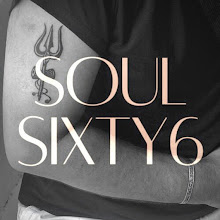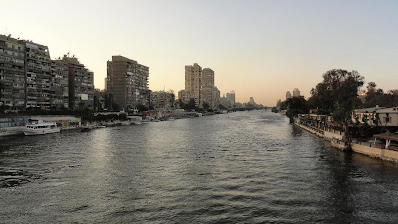 |
| Tahrir Square |
Egypt, the name itself resonates with a feeling of historical romance, the Pyramids, magnificent Nile, Deserts, Ancient History. But, it was much more than the history this trip, a new chapter in Modern History had just been scripted at Tahrir Square - the birth place of the most peaceful and non-violent civil revolution in recent history to have sent a dictator packing, who ruled and looted the country for three long decades. Having followed the revolution closely and the events that followed , was looking forward to a visit to Ground Zero – The Tahrir Square.
Due to similar problems of civil-unrest and freedom-struggle brewing in other countries in this part of the world, noticed while in transit at Bahrain airport that it had a completely deserted look. A housekeeping employee, originally from Kerala who worked at Bahrain airport, mentioned that most of the Indians had already returned home and he was one of the very few left behind. He was also curious to know as to why I should be going to Egypt during such a tense situation.
Cairo airport, on the contrary, was full of local people, buzzing with activity. Unlike Bahrain, there was hardly any sign of a post-revolution tension or a disturbance. During the stay, met & interacted with lot of people – young and old – had very interesting discussions with some of them - on religion, on dictatorship, on democracy & elections, on the politics of USA & Oil etc etc. It was very interesting to know their diverse viewpoints.
The spirit of a Free Country (freed from the clutches of a dictator who ruled and looted the country for three decades), ready to embrace Democracy, was clearly visible in the general mood with vibrant and confident smiles subtly conveying the message – “we have arrived”. Everyone seemed to be happy & contented with what they had witnessed and achieved as a common citizen, proud of the fact that they were part of such a Historical Event.
 |
| Fire at Police HQ |
But there was also another face to all this celebration – very little tourists, hotels were near empty, local people repeatedly cautioned avoiding lone walks even in the beautiful downtown Cairo. Law and Order was pathetic as only 10% of the Police force had reported back to work after the revolution – the remaining 90% allegedly still soft on Mubarak are viewed as pro-Mubarak supporters, ready to strike anytime. Lot of gypsies had also landed into the city from surrounding desert areas indulging in looting and arson. People I moved around with were carrying personal arms for self protection. The “sound and light show” at GIZA Pyramids was almost empty, as is evident in this picture.
 |
| GIZA Pyramids - Sound & Light Show |
I digress and would like to go back to Tahrir Square revolution and the socio-political events that followed, as that is so very relevant to our country in the current scenario, and would make this post meaningful and interesting. Met a young and educated businessman, 29 years of age, who led the Tahrir Square revolution from the front. He shared some very interesting insight and details, some of which may already have been in the electronic media but it was an experience to have a first person account.
I would not want to get lost into details but some important points that emerged from this discussion are as follows:
- The Protest started on 25th January, in a very small way and with very few numbers, nobody actually thought that this would spin out in a full blown historical revolution of this magnitude.
- A very small group of people gathered at Tahrir Square initially, with a list of some usual demands from the civil society.
- The event initially started with Facebook and went viral within one week,
- In the next 4-6 hours on 25th January, the number of protesters went up from a small group to a few hundred and within 2 days to a few thousand people, women and children included. I saw the picture of his 3 year old son, waving the Egyptian flag in the crowd.
- It was the Youth of the country who actually started the revolution and took it to its logical end. It was never on the agenda to demand complete removal of Mubarak and freedom from his dictatorship.
- The tipping point was the violent attack on innocent protesters (on the “6th of October bridge”) by Mubarak’s supporters & army who arrived on horses and started killing people on the street. THAT, one single incident actually put Mubarak out of job. Until then it was just a protest for a list of demands but from that moment onwards, it turned into an all out anti-Mubarak protest and people asked for nothing less than a total change of Regime.
I asked some questions - How were they able to sustain the protest for so long? How were they able to get the increasing number of people joining in every single day? How were they able to build-up and keep public interest alive? How could the common man who is forced to go to work actually afford to find time to join the protest at Tahrir Square instead?
He clarified agreeing that it was difficult to gather momentum initially for the first two days, but soon it turned into a National issue – Facebook and SMS worked wonders and people started travelling to Cairo from all over Egypt to join the protest at Tahrir Square. They were well aware of the fact that the world was watching them closely as they could see thousands of journalists and TV crew covering the event live. All the offices and establishments started closing down soon as people refused to go in there and join the protest at Tahrir Square instead and THAT helped a great deal.
I further asked if there were any Social or Political groups leading or backing up the protest? The answer was an emphatic NO. The protest & the revolution was purely the effort of the common man. A federation of focus groups of people called “Coalition of the Youth of the Revolution” actively co-ordinated all the efforts, without a leader and without a political group or support. Muslim Brotherhood was not even seen anywhere around during the protest and surfaced only after everything was over and the country started looking ahead for options. It seems Muslim Brotherhood claims a 30% vote bank but they are not considered a very popular choice.
Among the people from older generation whom I met during the trip - in their late 50’s and 60’s – they were candid enough to admit the fact that they never had imagined that they will ever be free from the dictator. They never thought and never considered this also was an option. One of them said – “we have spent major part and the prime of our life serving the dictator - we could never have achieved this” and credited the educated and liberated youth of the country.
I had arrived Cairo on the Monday following Saturday’s (19th March 2011) referendum. As per the unofficial and unconfirmed figures that I would gather during the conversations, I was told that as much as 70% of the total voting population of Egypt (40 Million odd) turned up to cast their vote, as against 41% to 62% that I had read in the media. Over 77% voted as YES to the referendum, leading to the list of some 11 points for Constitutional Amendments. NO to the referendum would have meant more agony, extended freedom struggle, extended army rule, more civil unrest, more violence and turmoil etc; stretched over an indefinite timeline. But then the take away would have been a complete change in the existing constitution and framing of a new one. This was the clear choice of the other 23% who voted NO. This was a rather tough choice for the majority of 77% of YES vote – especially people from the very poor plus the lower income group as they were running out of resources and wanted to return to normal life and their work. For them, any change from the Dictator Regime would be good enough for now. 23% of those who voted for NO, a majority came from well-to-do family backgrounds, educated, liberated and believed that they needed a complete change and freedom, supported by a fresh new constitution. They are not happy at all with this outcome as they feel that after all this struggle and the revolution that they went through, the two leading political parties - Muslim Brotherhood and National Democratic Party (of Mubarak), would be the ultimate beneficiaries. No wonder, Muslim Brotherhood hugely supported the YES vote.
Everyone is now looking forward to a free and fair democratic election that is due to be held in six months time – September 2011.
Walked through the beautifully maintained streets of downtown Cairo in the late evenings and dined at some really nice and exotic restaurants along the Nile. Also drove down through the Desert Road to Alexandria for a day and went past the beautiful and brand new “6th of October city”. Finally, the Light & Sound show at Giza Pyramids was something that cannot be put into words, was worth an experience.


Comments
Post a Comment